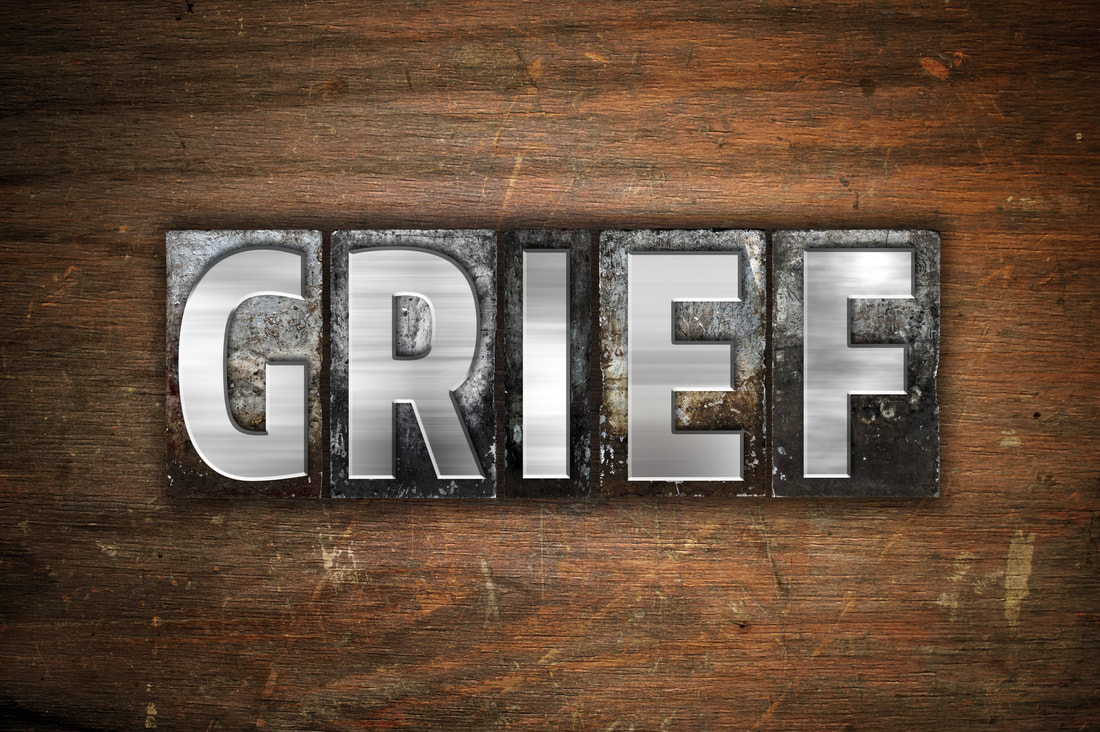|
On the cusp of a breakup, separation, or divorce, it is common for people to focus mostly on what they will lose: a spouse or partner, time with their children, relationships with the ex's family and friends. The list goes on and on. As a separation and divorce counselor, I like to help clients honor the pain of loss while reminding them of what will also be gained: relief from the tension of a relationship that wasn't working, the confidence of knowing they can thrive on their own, new experiences with people they've yet to meet. This list, too, can go on and on. When the basic business of just getting by (e.g., getting out of bed, taking a shower, going to work, etc.) seems herculean, it's hard to trust that the future will be bright. But, with a little mindfulness, some time, and some effort, it is possible to thrive after a breakup, separation, or divorce. If you are in the pain trenches of acute loss, here are a few tips to help guide you toward a brighter future:
Even if you don’t believe it right now (which is okay), you are heading toward wherever you are meant to go. What if this ending is an invitation to feel as whole as you already are? Dr. Jill Gross is a licensed psychologist, therapist, and counselor. She offers grief therapy, divorce consultation, co-parenting support, and other counseling services in the Phinney Greenwood area of Seattle, WA. If you would like support in finding the forward path, schedule a free consultation to see how divorce counseling can help.
0 Comments
Early grief is a basket of contradictions. The pain tells us to “do” something but everything hurts and there is nothing we want to do. We want the pain to stop but letting it go feels like a betrayal: of the deceased, of us, of our grief. We long for supportive company but accepting well-intended offers from people who have no idea what we are going through makes us feel even more alone. In moments like these, our pain seems unsoothable: nothing can be done or said to make it dissipate. It’s okay to long for the life you had with your loved one. And, it is equally important to keep going forward with life as it is now. There’s a good chance you feel as sad as you do because you deeply loved someone and because you were deeply loved in return. The truest form of love is the unselfish wish for another to be happy, even when we cannot be with them in physical form. By continuing to care for yourself, you are not only honoring the person you lost, you are stepping toward your own aliveness. Which, conveniently, happens to be the best forward path after loss. We do this slowly, one moment, one day, one week at a time. Here are a few tips to help reconnect you with your own aliveness:
Speaking of time, now may be a good one to remind you that, everything, even your pain, is designed to be temporary. You will hurt for a while but you won't feel this way forever. With each day that passes, each forward step you take, you are succeeding are rebuilding your life. And that is more than enough. Dr. Jill Gross is a licensed psychologist, therapist, and counselor. She offers grief therapy, divorce consultation, co-parenting support, and other counseling services in the Phinney Greenwood area of Seattle, WA. Having trouble rebuilding after the death of a parent, spouse, child, family member or friend? Schedule a free consultation to see how grief counseling can help you move forward in a healthy way.
Howdy folks! In my years of being both a participant and leader of therapy groups, public speaking engagements, etc. I’ve learned that, if one person has a question, chances are, others in the group have the same (or similar) question. If that question never gets asked, then no one gets the benefit of learning from it! It is for this reason I’ve decided to experiment with something a little different.
Over the past few months, I’ve gotten so many great questions via “Ask The Shrink,” that I’ve decided to publish them here on the blog. The question below is one I recently received from a reader and, given the frequency with which the topic comes up in my therapy and counseling practice, I couldn’t wait to share it with the rest of you! So, if you’ve got a question, click here to ask it and you may just see your question answered in a future blog post! Of course, all identifying information will be omitted to protect your anonymity. Hi Dr. Gross, I have a problem with my boyfriend's mother. My boyfriend and I have been dating about two years. We are both in our late 20's. My boyfriend's mother has a history of not liking her other children's "significant others." However, it really bothers me that his mother is so standoffish and judgmental towards me. Her tone and eyes are cold and she rarely offers positive affirmations of my life happenings. It makes me feel insecure and sad. My boyfriend is sad about it too. He talks to his dad who is also uncomfortable with his wife's behavior. I want to have a happy relationship with her. It is especially scary to imagine marrying my boyfriend and having her for a mother-in-law. Not sure what to do... I look forward to hopefully reading guidance you may have. Best Wishes, "Maybe-in-Law" Dear Maybe, First of all, thank you for broaching this topic! Learning how to relate to a partner’s family can be quite complex, particularly when members of that family seem reluctant to engage. When I read your letter, the first thought I had was that your boyfriend’s mother feels exactly the way her actions make you feel: sad and insecure (scared). Parenthood is a complicated stew of emotions: we want our children close yet we must also accept that they do eventually grow up. I think your partner's mother is grappling with this very issue and, rather than acknowledging the fear and sadness it often evokes, she is taking it out on the poor, unsuspecting partners of her now-adult children. In this case, that unsuspecting partner is you. You feel sad and insecure for a good reason: no one wants to be pushed away by a member of their beloved's family! If there is anything to be said or done about this, your boyfriend is the best candidate for the job. Assuming he hasn’t already done so, I would encourage him to talk with his mother and say something like, “Mom, I love you and my girlfriend so much. Nothing would make me happier than for all of us to be close and have fun together. How do you think this can happen?” This question states your boyfriend’s wishes clearly while enlisting his mother to be part of the solution. Win-win! If your boyfriend’s mother denies her behavior or gets defensive, he gets to decide the best way to set appropriate boundaries with his mother while protecting his allegiance to you. Then, the two of you get to decide on your own how much time you choose to spend with someone whose actions leave you feeling sad, insecure, or both. The fact that her son is ready to start a life and family of his own is a testament to what a good job his mother has done...she just doesn't know this yet. Keep in mind that time and consistent kindness can thaw even the iciest conditions. Though things may be a bit frosty right now, if your boyfriend’s mother continues to witness how happy you make her son, she may eventually conclude that the best way to honor him is to accept the person he is choosing to spend his life with. Thank you again for entrusting this community with your question. Best wishes to you as you navigate this challenging situation! Yours in health, Dr. Jill Speaking of community, have any of you successfully worked through in-law issues? We would all benefit from knowing how you did it! Please share your story in the comments section below. Also, feel free to share this post with anyone who may be asking their own version of this question! Dr. Jill Gross is a licensed psychologist, therapist, and counselor. She offers grief therapy, divorce support, and other counseling services in the Phinney Greenwood area of Seattle, WA. If you've got questions about your own relationship, schedule a free consultation to find out how therapy or counseling can help you!
Something strange is happening in Seattle. Mother nature appears to have gotten the memo, albeit a month later than the rest of the country, that Spring has arrived.
As I’m writing this, it’s a balmy 74 degrees outside, the gardens are in full bloom. Like earthworms after a good soaking, Seattleites are creeping out in droves from their bookstores and coffee shops to pay tribute to the one thing we all yearn for but cannot control: the sun. Closet mainstays of Gortex and fleece have been temporarily exchanged for tank tops and shorts. The Greenlake lawn is smattered with blankets and picnic baskets. Translucent limbs gently tip toward the golden orb that forsakes them for two-thirds of the year. Fellow park goers pass one another with chins held a little higher, smiles a little wider, freely spouting weather-related pleasantries, exchanging gleeful, knowing glances. It is as if everyone in the city is holding the same winning lottery ticket. While out walking today, I started thinking about why Seattleites go nuts when the weather is nice. A story came to mind about a man who immigrated to the United States from a poor, rural part of India. Upon his first trip to an American grocery store, the man fell to his knees and wept. When his companion asked why the man was crying, he replied, “Such abundance! How is one to appreciate anything?” Indeed, the first sunny day in Seattle nicely exemplifies how scarcity can beget tremendous gratitude. The city's residents savor every moment of sunshine because we know it won’t be long before it disappears. We resent the rain, yet we also know it is the prerequisite for the flowers and fruit trees that dazzle us come springtime. Life is the same way. When we are experiencing a long stretch of suffering or scarcity for which there is no scheduled ending, it is easy to get mired in dark emotions. Every human emotion comes with its own, unique script. Most commonly, when we are suffering, we feel hopeless which, for most of us, sounds like “I am trapped in a hole that is too steep to climb. I will be here forever.” These thoughts are pretty convincing. They seem real, but they are not true. Hopelessness is just like any other emotion, free to come and go, once fully permitted to exist. It is normal to resist suffering out of fear of being carried away by its undertow. In lieu of curious examination of our feelings, we often shame or judge ourselves for having them. Allowing space for dark emotions is not synonymous with succumbing to them. The opposite is true. The more we resist what we are feeling, the more likely our feelings will manifest in ways that don’t serve us (e.g., explosive rage, drinking or drug use, shopping, gambling, etc). In other words, we are fated to act out our feelings until we are ready to learn from them. Life is fraught with suffering. We cannot sidestep it altogether; we must go through it. Here are a few things to keep in mind as you inch your way forward:
Sometimes the lessons we are meant to learn from suffering require additional resources, such as a licensed psychologist, therapist, or counselor. If everything you’ve tried on your own doesn’t seem to be working for you, widen your circle to include a trusted professional. Your mental health is worth the investment! Have you found an effective way out of suffering? Tell us all about it in the comments section below! Dr. Jill Gross is a licensed psychologist, therapist, and counselor. She offers grief therapy, divorce support, and other counseling services in the Phinney Greenwood area of Seattle, WA. Scarcity got you down? Schedule a free consultation to find out how therapy or counseling can help you lead the life of abundance you deserve! |
AuthorDr. Jill Gross is a licensed psychologist, specializing in grief and divorce. Her coaching and therapy practice is located in the Phinney - Greenwood area of North Seattle in Washington. Archives
May 2021
Categories
All
|
HoursM-TH: 8:30 AM - 2:00 PM.
By Appointment Only |
Telephone & Email |
Address503 N. 50th Street
Seattle, WA 98103 |
*Header Photographs courtesy of Josh Martin






